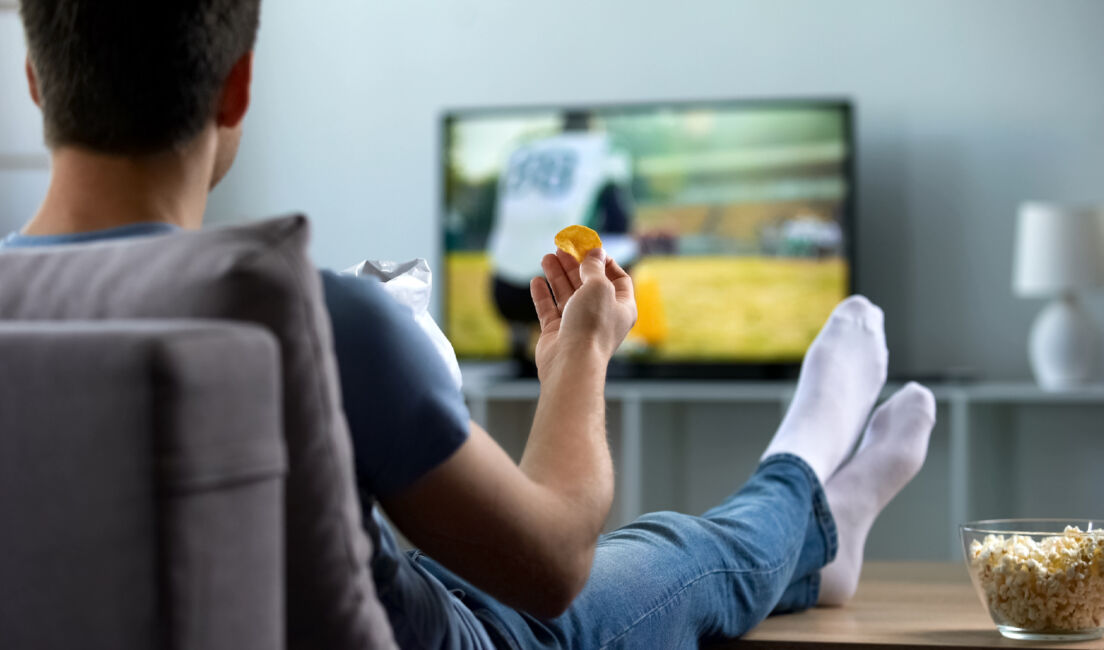Patriotism and protest, athlete speech, and 5 links worth your time
Sitting an hour on someone else’s couch

A couple of years ago, I took a trip to Greece for my 9th wedding anniversary. As my husband and I wandered around the grounds of the Parthenon, we saw one of the local guides, a young Greek man, down on one knee, gesturing with great animation to a group of American tourists. As we eavesdropped on their group, we were expecting to hear an epic story of some ancient Greek history, but as we moved closer, we heard him gasp the words “Colin Kaepernick.”
It’s all Greek to me
To this day, I regret not being nosy a minute or two earlier, so I could have found out what in the world an American sports controversy had to do with the ancient Greeks, but the scene sticks with me for a different reason. It says something interesting about the power of the image of an influential person, kneeling in protest on a public stage, when the custom in that moment is to stand. That image had enough impact to travel across the globe and land in a tour guide’s spiel that presumably had very little to do with the NFL and the cause of racial justice in America. People everywhere were talking about that image, and it drew attention to the cause very effectively – no matter which side of the debate you landed on.
And four years since Kaepernick took a knee, here we are again, in an urgent national conversation about racial justice and the “right” way to protest. The conversation remains pressing and heated, but now it’s not just about Colin Kaepernick. An NBA players protest strike and a variety of team- and league-supported demonstrations in the NFL have put it back in the headlines.
Should politics and sports mix?
It’s been a long year already, and, in many ways, we’re just lucky to have the option of diverting ourselves by watching sports right now. I expected the return of sports to be a healthy outlet for our tribalistic tendencies, allowing us to pour our pandemic frustrations into traditional rivalries. Instead, questions about the right way to protest and draw attention to a cause—whether or not it’s a sign of disrespect for the country, whether athletes should be making political statements—keep popping up and dividing us. Clearly, there is more that needs to be said.
Shut up and play, or stop and listen?
Is it disrespectful to kneel during the national anthem? Are there spaces that should be free from politics? Should athletes stick to sports and leave political protests to pundits and elected officials? Are some causes so important that they trump concerns about disrespect and custom? No matter what you think about any of these questions, productive dialogue about them will require the willingness to put yourself in the shoes of someone who sees things very differently.
Our 5 links this week look at the protests in greater detail. I invite you to use them to consider these questions from the perspective of your neighbor’s couch (or your dad’s, or your college buddy’s, or whomever’s couch feels uncomfortable to you). See what you can appreciate about their perspectives. Hopefully, you’ll find a way to talk about it where everybody wins.
5 links worth your time
- The Problem with Pick a Knee, National Review – David Harsanyi takes aim at the symbolism of kneeling and whether or not it is effective at prompting change. He outlines the argument for settling injustices, without being disrespectful to the country as a whole.
- Conservatives Fail the NFL’s Free Speech Test, The New York Times – Is kneeling during the anthem a sign of disrespect? Or was Colin Kaepernick’s protest an exercise of the American values of free speech and liberty? David French, a senior writer at The Dispatch, explores these questions.
- The night the NBA suddenly stopped – and why it matters, Vox – Dylan Scott argues that the NBA players strike was an effective, spontaneous protest with real risk on the table for the players involved. What happened when the Milwaukee Bucks declined to take the floor for their playoff match to protest the shooting of Jacob Blake in Kenosha? Why this is unique in the history of sports?
- Americans are Far More Likely to Support Athlete Protests Than They Once Were, Fivethirtyeight – When Colin Kaepernick first took a knee, most of the nation wasn’t behind him. Historically, individual athlete’s protests have not been publicly popular, but in the last few years public opinion has shifted. According to one survey, 57 percent of adults supported the NBA protest of 2020.
- Protests and Social Change, Civil Squared Podcast – Fabio Rojas, a sociologist who studies protests and social movements, talks with us about what makes a protest effective, how the economic landscape matters to protests, and the data around violence and protests.
Photo by Motortion on Adobe Stock